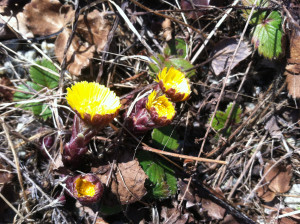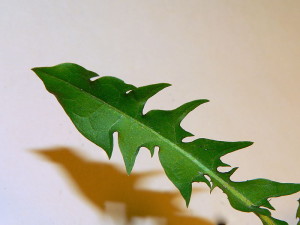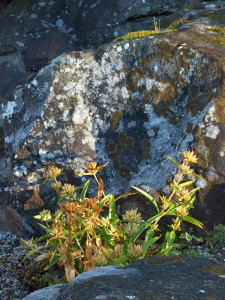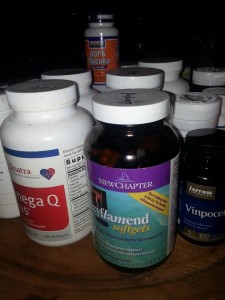
This is a guest post by Traci Piccard at Fellow Workers Farm Apothecary and I thought it was so right on point that I wanted to share it with you:
DEFENDING HERBALISM, OR NOT
At one point in my herbalist journey I refused to read or listen to anything which criticized my path. Those jerks! What is their problem? Herbs are great! Haven’t they read my blog?!?!?! And then I sought these people out, just to get mysef.
My love of herbal medicines was fragile, like a precious bit of fine China, something I needed to protect and guard. And I felt like I needed to defend my right to use herbs and to make my own health choices, and I was interested in being right.
I would pick out the one point that they got wrong, while ignoring the parts which may have taught me something. Why can’t everyone see my way?!?! How can they possibly not GET this!?!?
But now, I don’t give a rat’s ass.
I have moved through the idea that other people need to believe what I believe. (Mostly.) I actively seek out people who don’t use herbs, and I am interested in why some people dislike them, make other choices or can’t access them.
I have tried things. like actually tried, not just read about them in a book or a magazine.
I have seen examples where herbs and other “alternative” healthcare have not worked, are not the best choice, or are promoted in actively manipulative, confusing or even potentially harmful ways.
And ultimately, I feel less threatened by others who want to prove me wrong. Go ahead. In fact, it would be helpful. I will read your critiques now, and sometimes they are right, sometimes wrong, sometimes both. I feel more confident in my use of plant medicines and my connection with plants, as well as my movement and nutrition choices, but I am always willing to learn more, to dig deeper, to ask questions, even of myself.
And I can see the humor in our humanity, the way we divide ourselves, the way we all form our groups and our paradigms and our dogmas and stick onto them like medicinal leeches. I am this and you are that. It is freeing to unstick myself from the sweaty leg of any one side, any one path.
And as I get older I have more of a grasp of what it means for a person and an idea to mature. I do love the new, fresh, youthful rage-against-the-system energy that innovates and wears hot pink and turns it up and boinks everything that moves, and must yell THIS WORKS in all caps on every herbal forum. Juicy, but fragile. Now I am falling in love with this more mature phase that brushes off others’ hyperbole and panic, lets my actions speak for themselves and commits to just keep walking, outlasting the haters. Well, tries to.
I still want to debate people who disagree with me, respectfully, and I still want to share my love and joy around plant medicines. And, OK, I occasionally still craft long silly arguments in my head. But I am not afraid of the other opinions and approaches anymore. And there are many sides, not just 2, not just for vs against, not just pro vs anti, not just woo vs science, not just tin foil hats vs Big Pharma conspiracies. Maybe, sometimes, they have a point. Or maybe they are reactionary douchebags. Maybe they are just lonely or disconnected, and maybe we can be friends.
Perhaps now I’m strong enough to find out.






